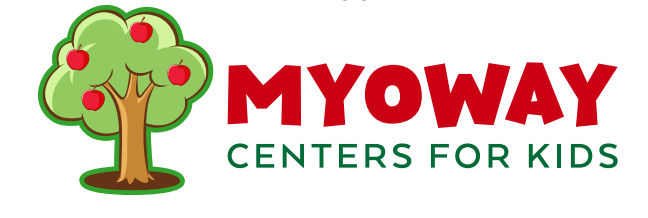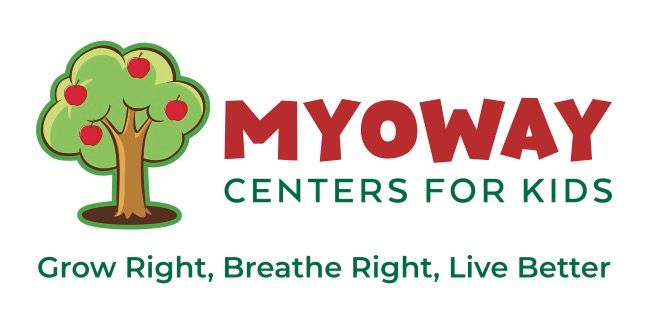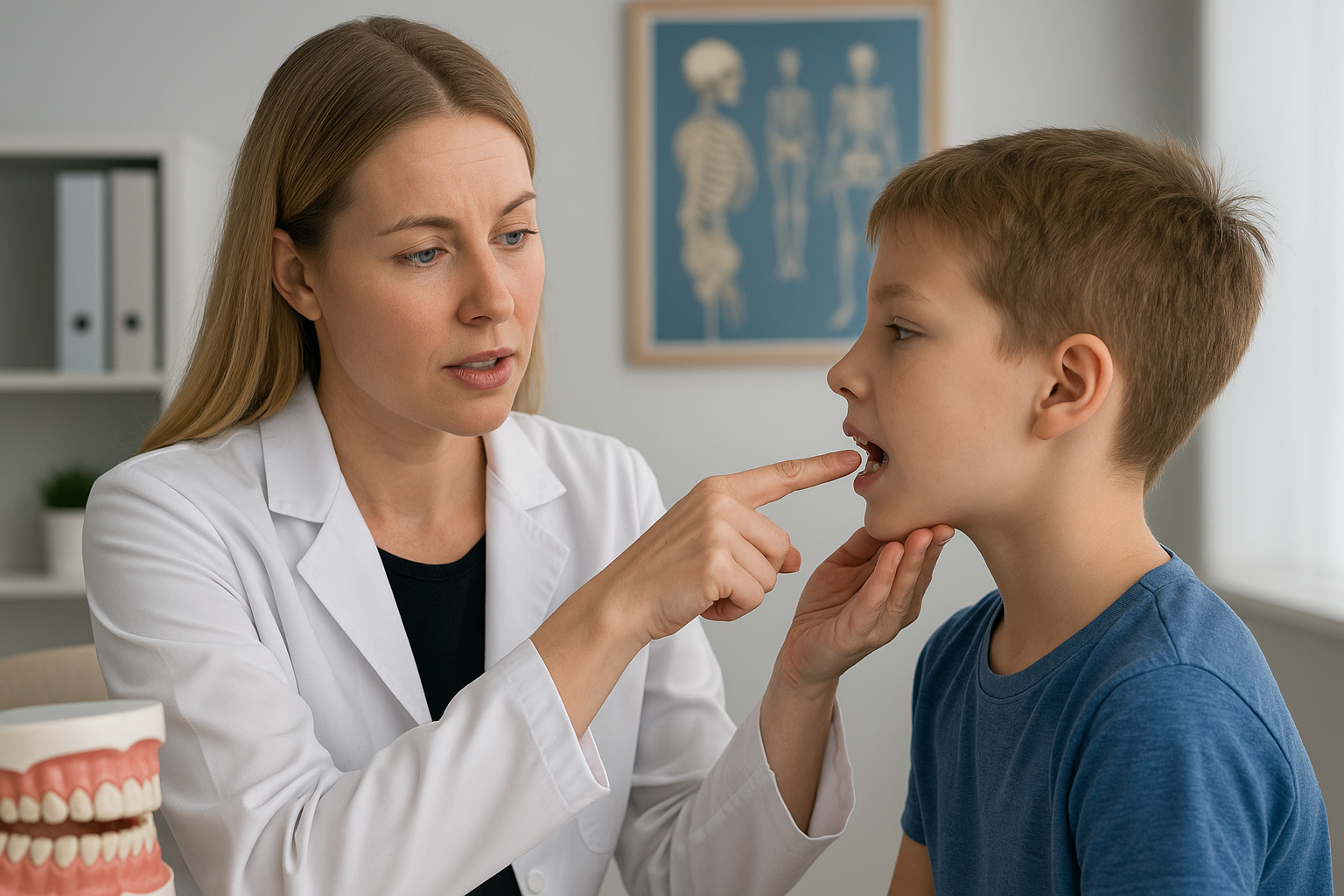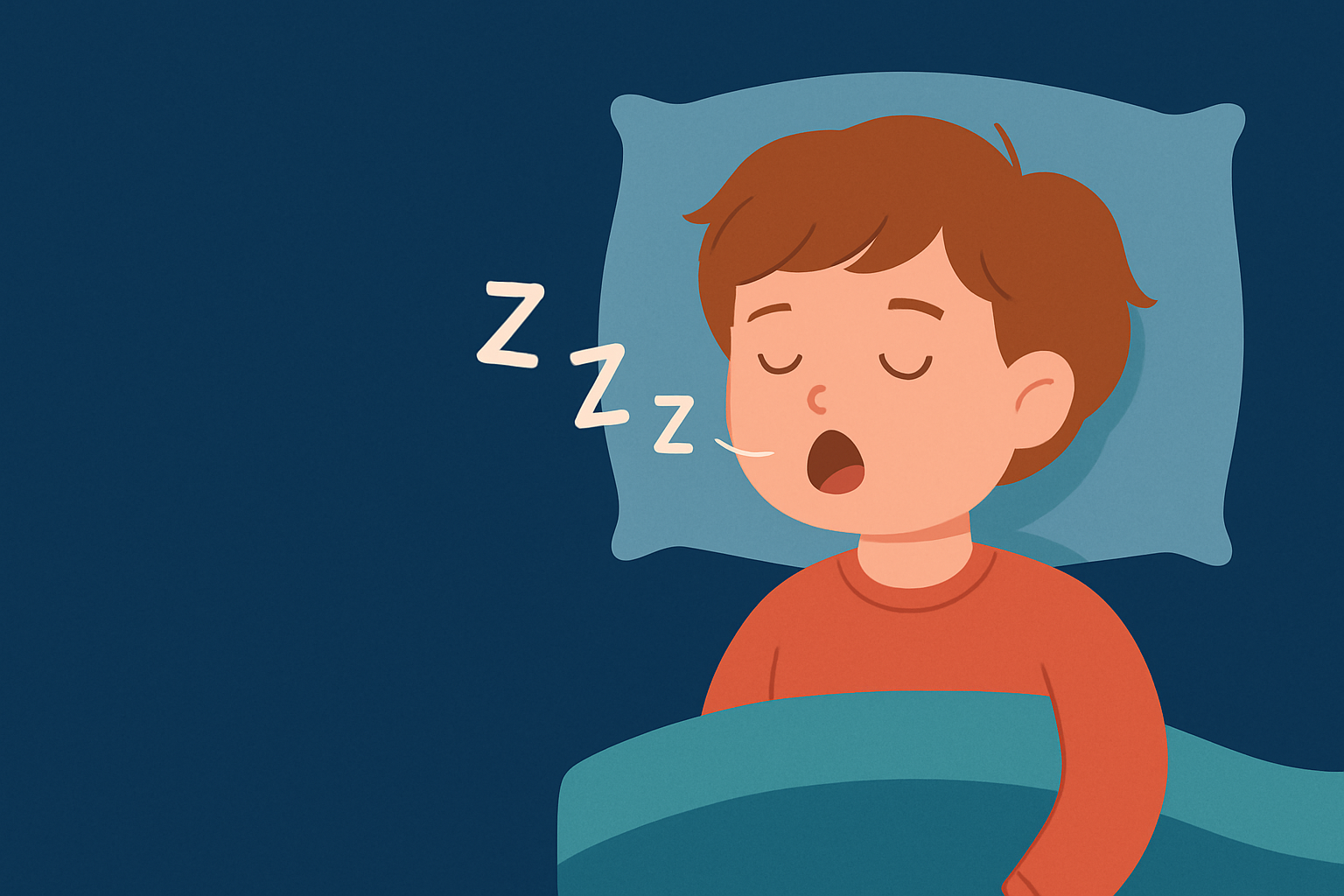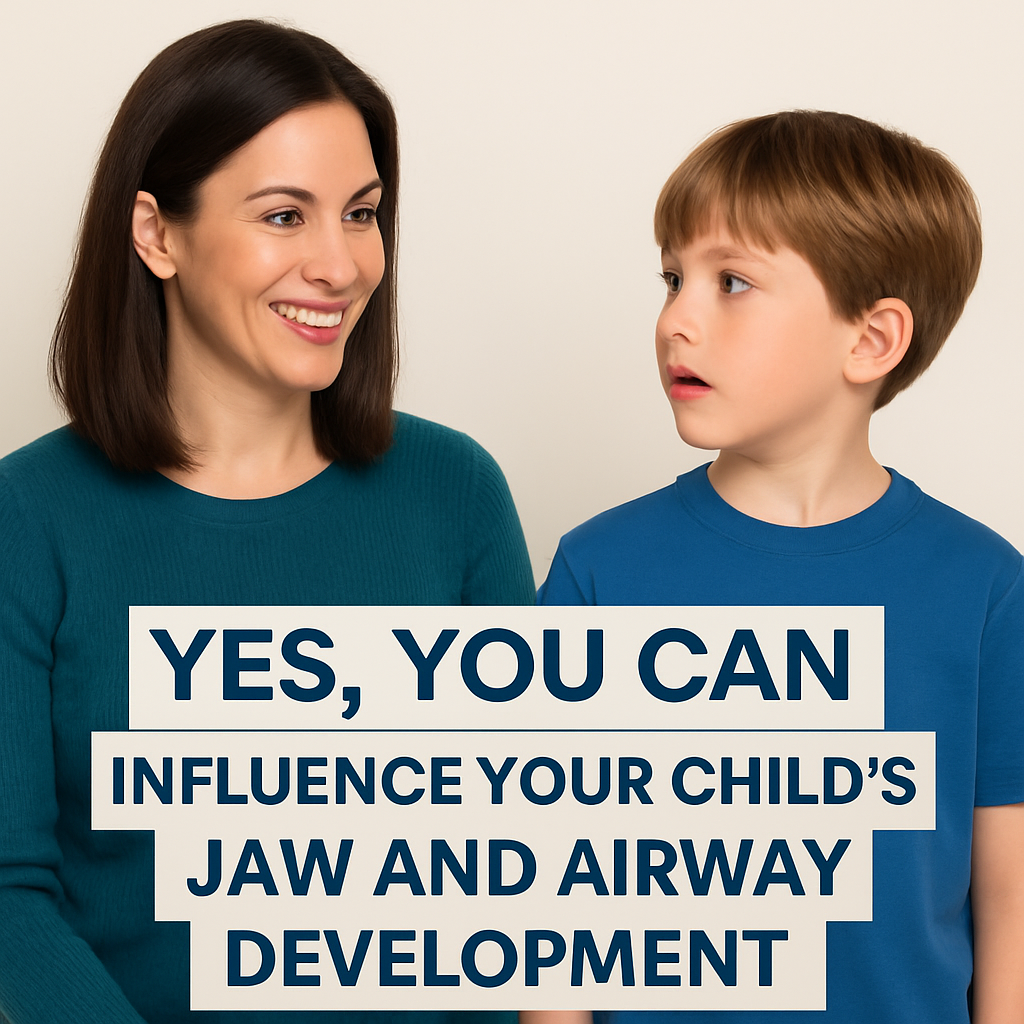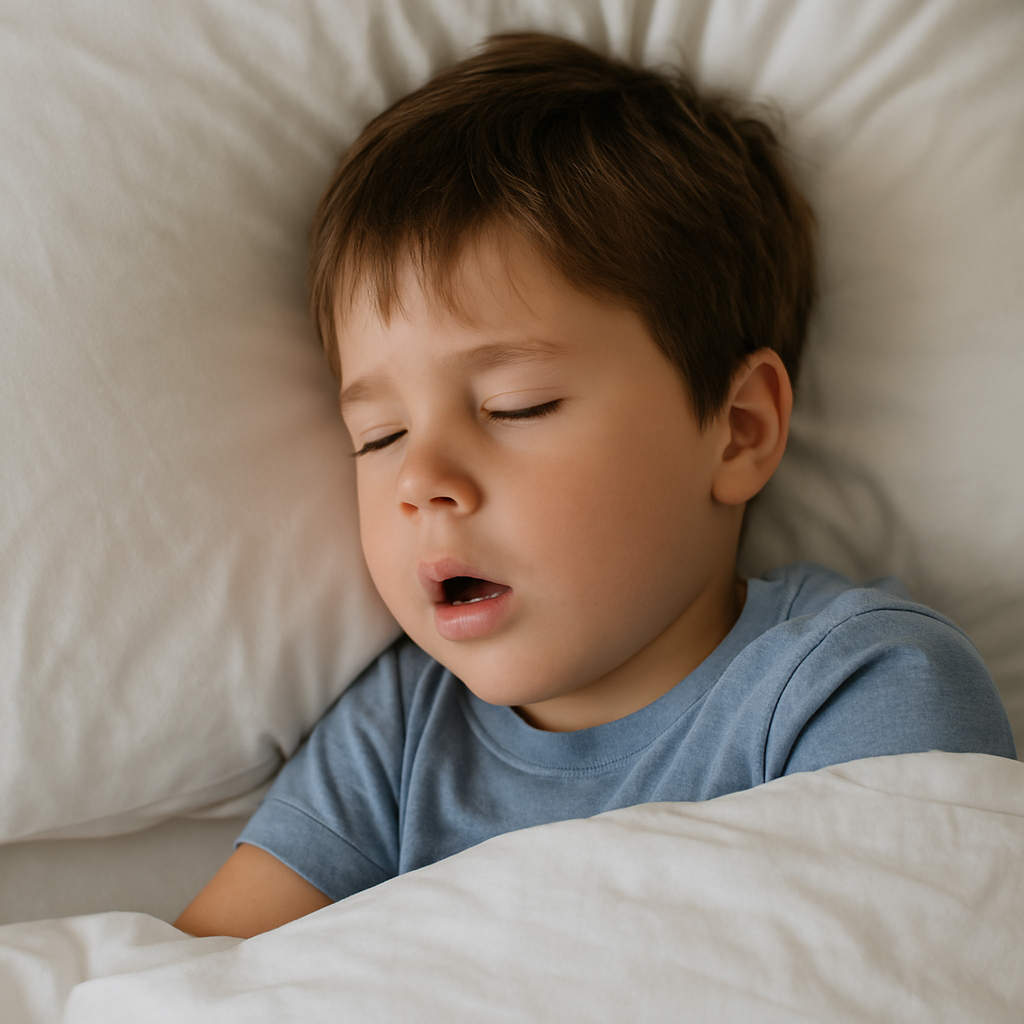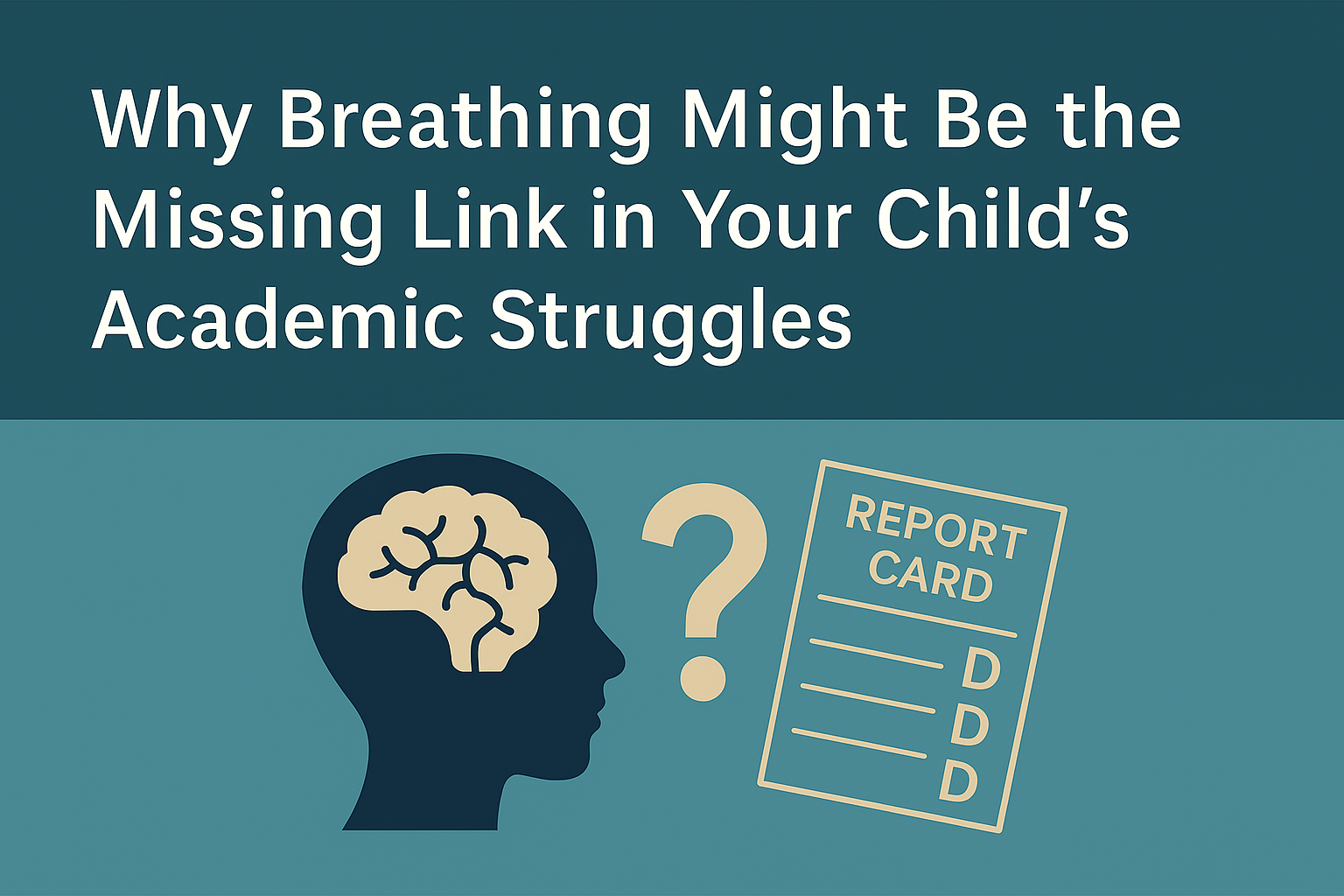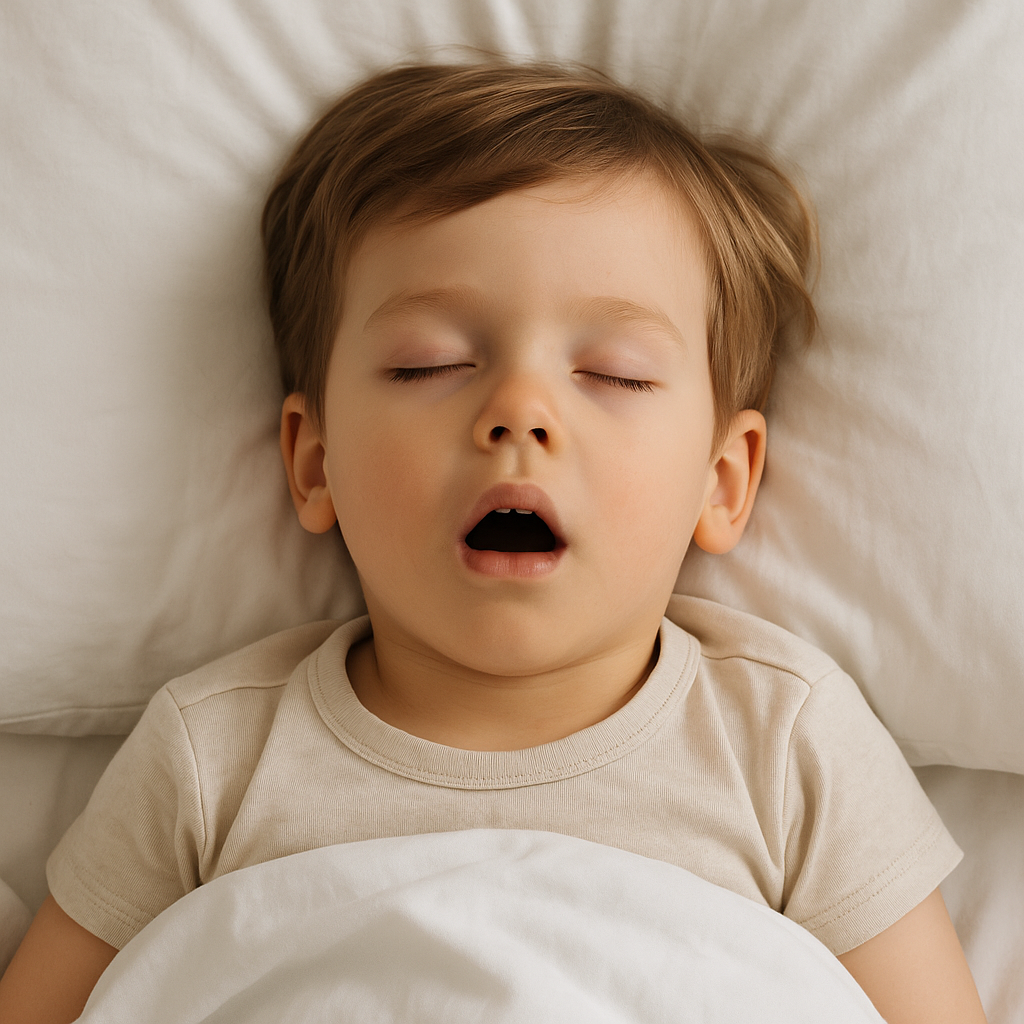How Mouth Breathing Affects Memory and Brain Development in Children
Why Does My Child Struggle to Focus or Remember Things?
Many parents find themselves repeating instructions, re-explaining homework, or managing a child who seems easily distracted. If this sounds familiar, you are not alone. These behaviors are common, but they are also often misunderstood.
What if the issue is not about effort or attention span, but about how your child breathes?
At MyoWay Centers for Kids, we see this pattern regularly. And research confirms what we observe in practice: mouth breathing in kids can have a measurable impact on brain development, memory, and focus.
The Overlooked Role of Breathing in Brain Function
Breathing is automatic, but the way a child breathes affects every part of their development. Children who breathe through their mouths—especially during sleep—may not get enough oxygen to support healthy brain function.
Mouth breathing changes posture, impacts oxygen delivery, and alters the position of the tongue and jaw. These physical shifts have downstream effects on sleep, energy, and even how a child processes information.
What the Research Shows
A 2021 study compared how the brain responds during memory tasks in two conditions: nasal breathing and oral breathing.
The results were clear:
- Children who breathed through their noses showed activation in brain regions tied to working memory
- Children who breathed through their mouths had significantly less activity in those same areas
- Oral breathing was associated with weakened brain wave power and reduced functional connectivity
The conclusion was direct: prolonged mouth breathing may impair working memory, which is essential for learning, academic performance, and daily function.
Why Working Memory Matters for Children
Working memory is the ability to hold and manipulate information in the short term. It allows children to follow instructions, solve problems, and stay organized.
When working memory is impaired, you may see:
- Difficulty remembering multi-step instructions
- Trouble staying on task
- Seemingly careless mistakes
- Low frustration tolerance
- Poor performance in school despite strong verbal skills
Many children with mouth breathing patterns are misdiagnosed with attention disorders when the issue may begin with poor oxygenation and low sleep quality.
Why Mouth Breathing Happens in the First Place
There are several common reasons for mouth breathing in kids:
- Enlarged tonsils or adenoids
- Chronic nasal congestion from allergies or illness
- Underdeveloped jaws or narrow palates
- Poor oral posture from habits such as thumb sucking or prolonged bottle use
- Obstructed airways during sleep
Once mouth breathing becomes habitual, it can change the structure of the face and airway. Over time, the problem becomes both functional and physical.
How Breathing Affects the Brain During Sleep
The brain needs deep, oxygen-rich sleep to organize and store memories. Mouth breathing reduces sleep quality in several ways:
- It leads to shallow, chest-dominant breathing
- It decreases blood oxygen levels
- It increases interruptions during sleep, even if unnoticed
- It reduces the time spent in restorative deep sleep
If a child is breathing poorly at night, the brain never fully recharges. This can lead to tiredness, memory struggles, and behavioral issues the next day.
Why Standard Approaches Often Miss the Root Problem
Many children who mouth breathe are never evaluated for airway issues. Instead, their symptoms are treated as emotional or behavioral.
They may be referred to:
- Tutors for academic struggles
- Therapists for emotional regulation
- Pediatricians for ADHD evaluations
Although these services can be helpful, they do not address the structural and functional issue at the root of the problem: the airway.
How MyoWay Centers for Kids Provides a Solution
At MyoWay Centers for Kids, we provide airway-focused care that supports the way a child breathes, grows, and functions.
Our approach uses:
- Medical-grade myofunctional appliances
- Targeted myofunctional exercises
- Tongue posture retraining
- Habit correction
- Regular assessment of jaw and airway development
Our goal is to encourage proper nasal breathing, improve airway growth, and help children access the oxygen their brains need to thrive.
Real Improvements Parents Can See
When we address the root of mouth breathing, families often notice changes such as:
- Better sleep quality
- More focus and attention in school
- Improved emotional regulation
- Fewer complaints about headaches or fatigue
- A noticeable improvement in behavior and learning
Parents frequently tell us that their child seems more like themselves again—happier, calmer, and more present.
Early Warning Signs to Watch For
Many parents do not realize that their child is mouth breathing. Here are signs that might indicate a problem:
- Mouth open during the day or while watching screens
- Loud breathing or snoring at night
- Waking up tired despite a full night’s sleep
- Grinding teeth or restless sleep
- Trouble focusing or remembering things
- Behavioral outbursts that feel unexplainable
If several of these signs sound familiar, it may be time to evaluate how your child breathes.
What Happens in a MyoWay Evaluation
At your child’s free consultation, we will:
- Review health history and symptoms
- Perform a full airway and myofunctional screening
- Observe tongue posture, breathing habits, and jaw alignment
- Recommend a customized care plan if therapy is needed
This evaluation is non-invasive, parent-friendly, and designed to help you understand how your child’s structure and function work together. We believe that every child deserves the chance to grow with a healthy airway and a well-functioning brain.
Our Focus on Collaborative Pediatric Care
We work alongside pediatricians, ENTs, speech therapists, orthodontists, and dentists to create an interdisciplinary care model that supports the whole child.
Our team understands how airway development intersects with:
- Speech delays
- Feeding challenges
- Dental crowding
- Sleep-disordered breathing
- Behavioral and emotional difficulties
By starting early, we help prevent more complex problems from developing later.
Why Early Airway Intervention Matters
Many families wait until braces are needed or academic concerns arise before seeking help. But the earlier we intervene, the more effective the outcomes.Jaw and airway growth occur rapidly between the ages of three and twelve. This is a key window for guiding healthy develop ment before permanent patterns set in.
Early airway therapy can:
- Reduce or eliminate the need for future orthodontic work
- Improve lifelong breathing patterns
- Protect against sleep-disordered breathing
- Support mental clarity and emotional stability
- Enhance quality of life and school performance
Do not wait for symptoms to worsen. Early action leads to better health and learning outcomes.
Final Thoughts
Mouth breathing in kids is more than a cosmetic issue. It is a signal that something deeper is happening in the body and brain.
Children who breathe through their mouths are at higher risk for cognitive delays, memory struggles, and disrupted sleep. But there is hope.
At MyoWay Centers for Kids, we help families uncover the real reason behind these struggles and create a clear path toward healing.
Book your free consultation in under 5 minutes
https://mychart.myoryx.com/patient/#/auth/onlineschedule?realm=myoway&univers=com
